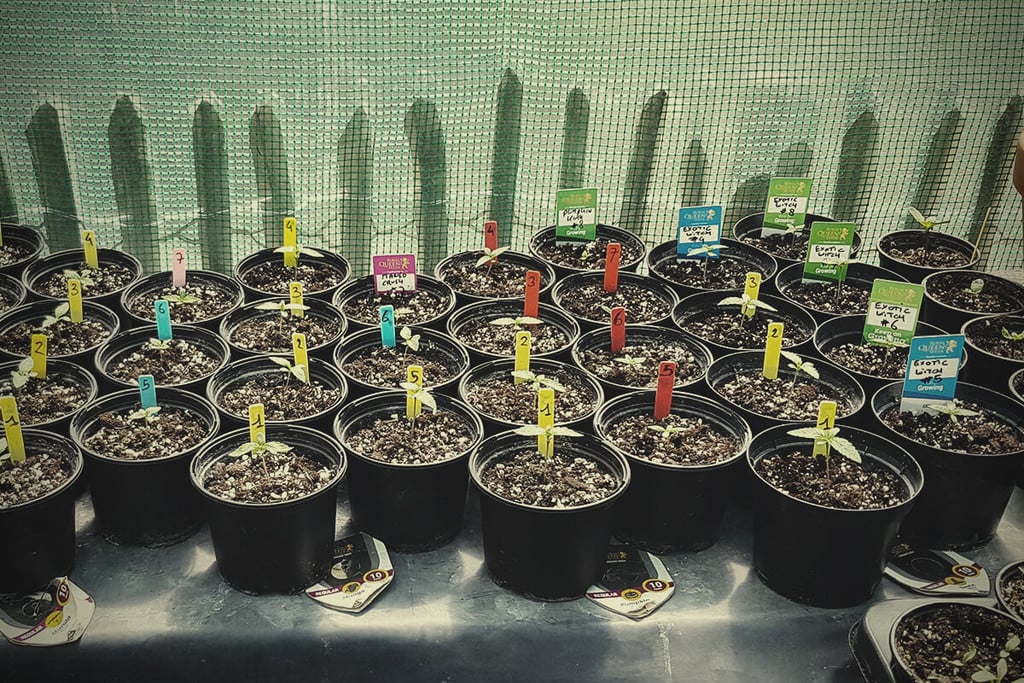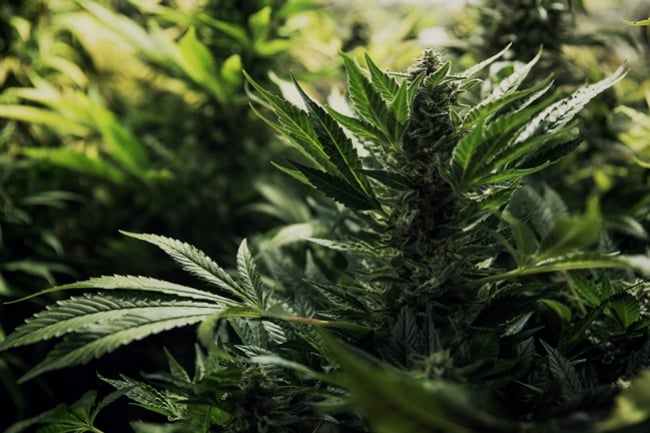.
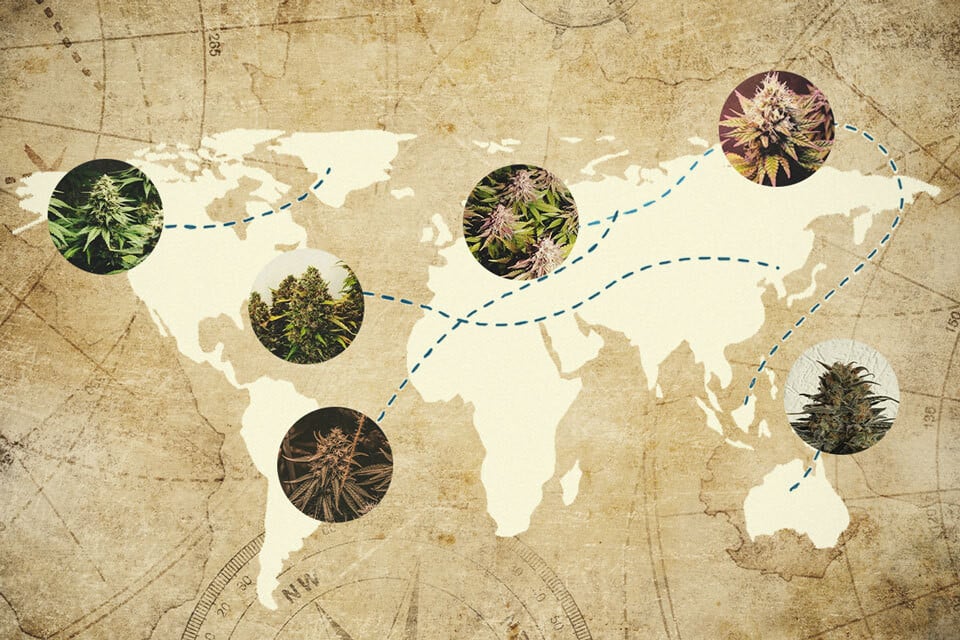
Famous Cannabis Strain Families
There are thousands of cannabis varieties available. Some taste sweet, whereas others are earthy or spicy. Some get you sky-high, while others are non-psychotropic. Find out where all of these cultivars originated, and why we tend to label them as "strains". Then, examine the most famous genetic families, their origins, and what makes them special.
Contents:
What are strains? Where does cannabis actually come from? How did breeders turn a wild plant into thousands of different varieties? What are the main weed strain families?
Follow along to discover the answer to all of these questions and deepen your understanding of this complex plant.
What Are Weed Strains?
Even if you’ve never smoked weed, you’ve likely come across the word “strain” when reading practically anything about cannabis. The word permeates the space, and you’ll find it featured in articles and plastered on weed products in dispensaries, coffeeshops, and seed banks.
At face value, the term simply describes a specific type of cannabis; there are thousands available, and almost all of them feature a memorable name (mostly based on their lineage) such as Royal Gorilla and Cookies Gelato.
-
The Problem With “Strain” as a Term
There’s no denying that the concept of strains helped the cannabis industry to blossom. However, because of prohibition, the development of the cannabis lexicon took place away from the guiding taxonomical hand of science. The term “strain” primarily belongs to the fields of virology and microbiology, where it describes the genetic variant or subtype of an organism.
The field of horticulture (the growing of plants such as vegetables and herbs) instead uses the term cultivar—meaning “cultivated variety”—to describe a plant type bred through the trial and error of selective breeding. This term more accurately applies to cannabis varieties, as the vast majority of cultivars are the product of breeding programmes carried out to obtain certain traits, such as unique cannabinoid and terpene profiles.
In truth, the idea of strains has mainly served as a critical marketing tool across the cannabis space. Breeders and dispensaries often lump their varieties under the umbrella terms of “indica” and “sativa”—a model that attempts to sum up the effect of each variety.
In reality, environmental factors, such as lighting, soil life, and nutrition, cause the phytochemical profile of a cultivar to fluctuate wildly; specimens of the same “strain” can possess different molecules—and different concentrations of molecules—and therefore different effects.
-
New Systems of Cannabis Classification
In an attempt to purge the murky waters, cannabis researchers are proposing new classification systems, such as chemovars and chemotypes, that do away with flashy names and inaccurate categorisation. Instead, these terms strip things down to chemical composition alone, helping researchers study the plant more accurately and enabling consumers to make more informed choices.
But where on Earth did all of these varieties come from? A change in language doesn’t change the fact that there are a great many cannabis varieties, all differing in their morphology (physical structure), effects, tastes, and productivity.
The Evolution of Cannabis
For some time, the geographical birthplace of cannabis remained contested, with India, Central Asia, and Tibet all considered likely locations. However, a 2021 study[1] published in the journal Science Advances helped to clear things up.
A team of international researchers set out to determine the domestication history of cannabis by way of whole-genome resequencing. Their efforts linked the domestication of the plant to early Neolithic times in East Asia. Therefore, all current existing types of cannabis, including drug-type and hemp, derive from the genetic pool of feral and landrace plants originating in today’s China.
From here, cannabis made its way across the world through trade routes and the migration of people. Today, it stands as one of the most popular psychoactive substances in the world, alongside caffeine.
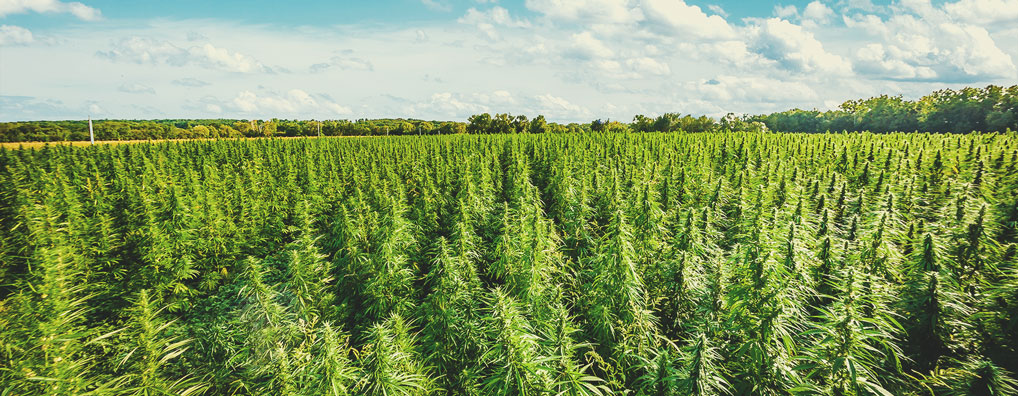
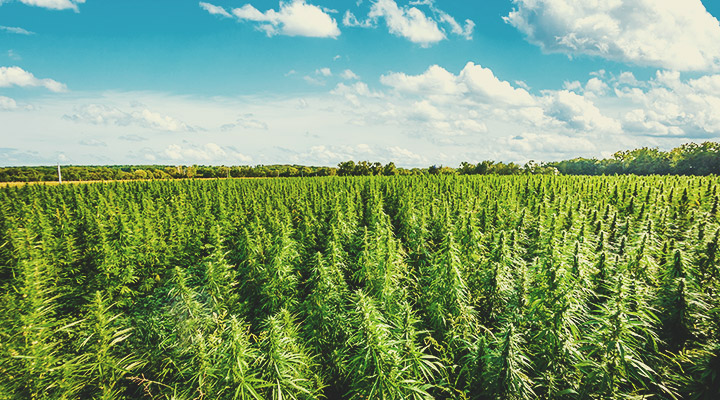
-
What Are Landraces?
A landrace variety refers to a cultivated type of cannabis that has successfully adapted to a specific geographical region.
Cannabis originated in the wild as feral progenitor species. During the Neolithic revolution (when humans transitioned from hunter-gatherer bands into agricultural settlers), early farmers in China started the process of cannabis domestication.
Wild species of plants feature high genetic diversity, a factor that helps them adapt, overcome, and survive. During the early domestication of landraces, farmers began to intentionally select specimens that best suited their needs, whether for industrial, holistic, or recreational purposes. This gave rise to cannabis plants with domesticated traits.
As farmers moved to new areas, and dished out their seeds to others, these domesticated varieties faced new challenges in the form of temperature changes, new pest species, and diseases. Over time, these varieties adapted to the specific challenges of each environment, leading to the emergence of landrace varieties, defined as[2] “traditional varieties selected by farmers for adaptation to local conditions”.
Landraces aren’t the most productive varieties. But what they lack in yield they make up for in genetic diversity, and in their ability to quickly adapt to environmental stressors. For this reason, few modern cannabis growers cultivate landrace varieties.
However, these plants form the genetic foundation of most of the cultivars grown and sold today.
-
Introducing Cannabis Hybrids
In contrast to landrace varieties, modern cannabis cultivars lack genetic diversity. Most growers want to purchase seeds that produce consistent results—without any unwanted surprises—alongside a rewarding harvest of potent flowers. Modern hybrids offer the perfect solution.
During the domestication of a landrace cultivar, breeders continually cross plants of the same genetic pool to ensure they grow true to type. Although this creates consistency, it eventually leads to inbreeding depression.
Hybrids, however, are crosses between two distinct cannabis cultivars. By breeding cultivars from different genetic lines (hybridisation), it creates a variety that features traits from each line. The progeny from this process are gifted with hybrid vigour, which means a surge in health and productivity due to a reversal of inbreeding depression.
Hybrids are ideal for growers seeking great crops every time. However, they don’t grow true to type.
Famous Weed Families
Early Neolithic farmers captured cannabis genetics from the wild and created the first landraces. Eventually, modern breeders used these genetics to create stable heirloom cultivars through inbreeding, as well as vigorous hybrids that perform incredibly well in the grow room or garden.
Now, thousands of cannabis varieties are available to growers, but a select few families have dominated the market. Check out the history and traits of these prolific, beloved cannabis families below.
-
Kush
The Kush family is by far one of the most cherished in the cannabis world. Popular varieties in this weed family tree include Afghan Kush and, of course, OG Kush. These varieties stem from a collection of landraces native to Afghanistan, northern Pakistan, and northwestern India. Hindu Kush (a stoning and earthy cultivar) originated from its namesake mountain range on the border of Pakistan and Afghanistan.
Kush strains found their way to the West thanks to bands of adventuring hippies—seriously. The so-called Hippie Trail featured a starting point in Western Europe and ran through Istanbul, Tehran, and Kabul all the way to Goa, Dhaka, and Bangkok. Young, bright-eyed hippies in search of alternative experiences trod these paths and stumbled upon a lot of good weed on the way. Naturally, they stashed away seeds and brought them home. Breeders in the United States got their hands on Kush in the 1960s, where it has since played a fundamental role in the creation of industry-leading hybrids such as Bubble Kush and the aforementioned OG.
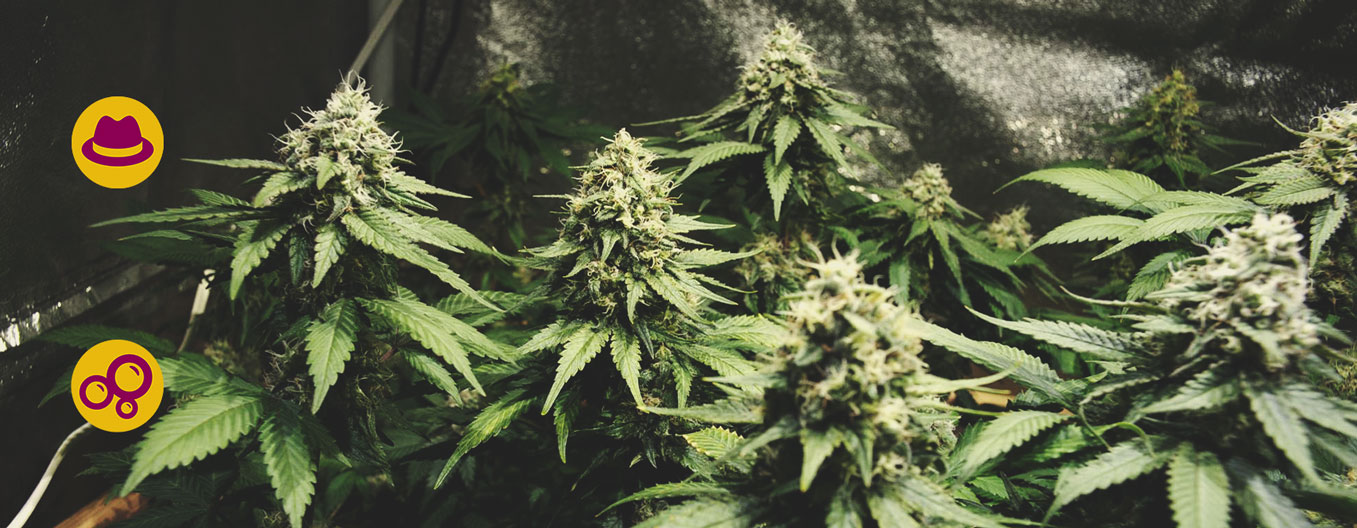
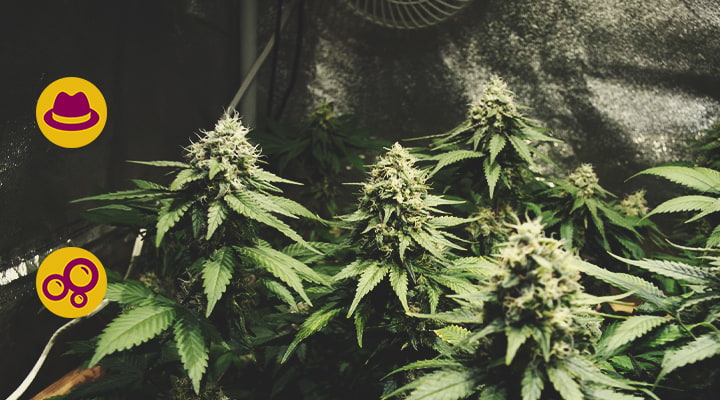
-
Cookies
Cookies cultivars are named after their delicious dessert-like flavours. The original Cookies varieties popped up on the West Coast of the United States (an influential breeding hot spot) around 2009. Two breeders from San Francisco, namely Gilbert Anthony Milam Jr and Jai, are the innovators responsible for this creation. As the masterminds behind the Cookies Fam group, founded in 2010, these legends developed their breeding skills from reading articles in magazines and from Jai's mother.
From here, the insane flavours and potent cannabinoid profiles of these varieties catapulted Cookies into the spotlight. Their impressive lineage, consisting chiefly of OG Kush and Durban Poison, guaranteed their success from the get-go. Some of the most popular Cookies varieties include Thin Mint Cookies, Platinum Cookies, and RQS’ Royal Cookies.
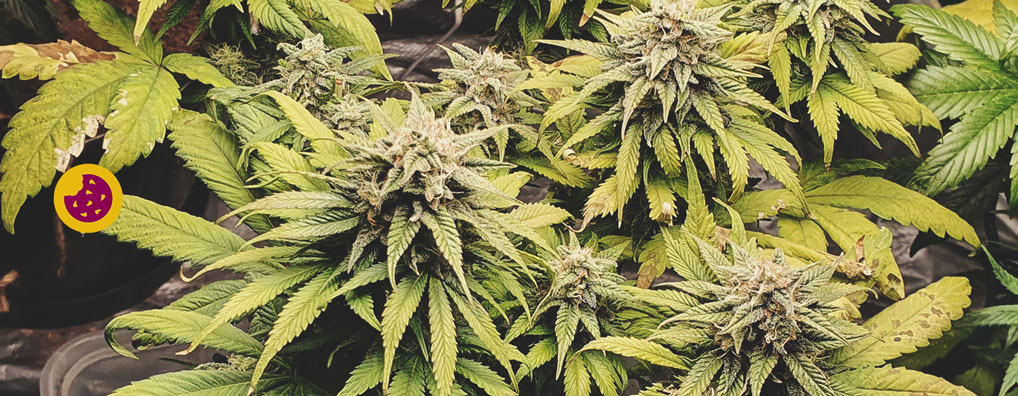
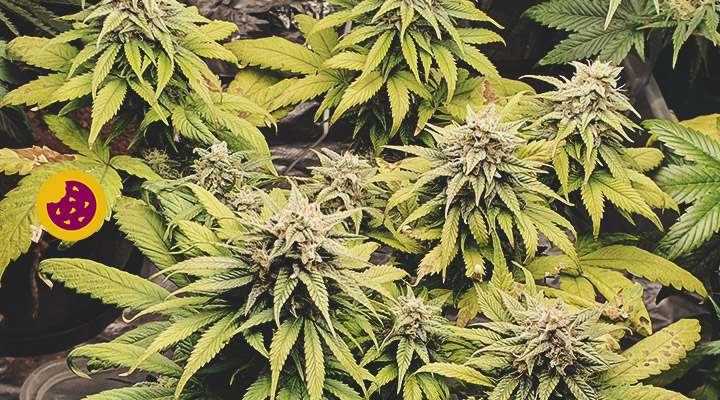
-
Afghan
Afghan (or Afghani) strains are believed to hail from the Mazar-i-Sharif region of Afghanistan. Here, the original genetic pool endured summer highs of 40°C and freezing winter temperatures. These hardy plants are adored for their stoning effects and impressive resin production. Following their introduction to the Western world, breeders harnessed their attractive traits to create a long list of hard-hitting hybrids, including ICE, Special Kush 1, Royal AK, and Northern Light.
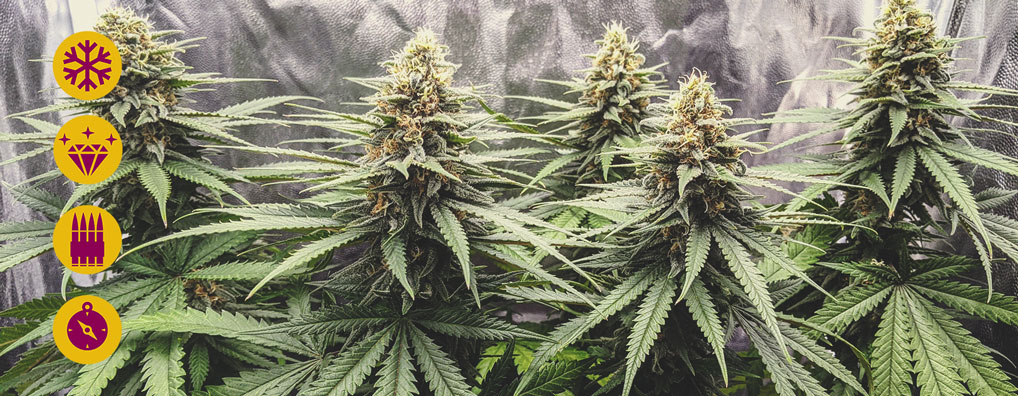
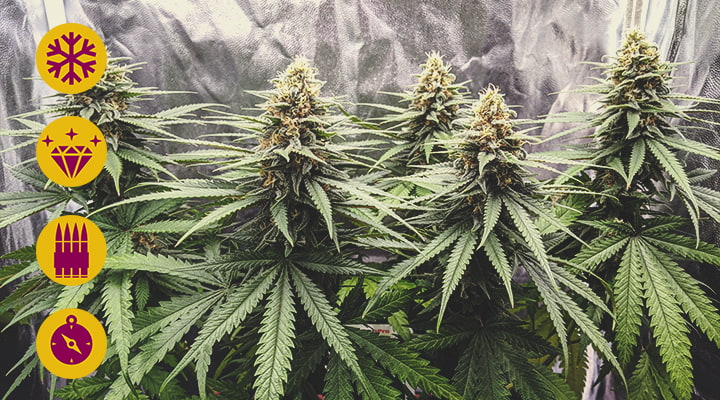
-
Haze
Shining Silver Haze. Amnesia Haze. Chocolate Haze. Chances are you’re more than familiar with these names. They are frequently available in dispensaries and coffeeshops, after all. An untold number of cannabis users revel in the cerebral and energising highs that the Haze family has to offer. But where exactly do these genetics come from? In truth, nobody really knows. Their roots are thought to be in several landraces from around the world, such as Acapulco Gold and Mexican, Thai, and Indian sativas. But this all remains speculation at best. However, we do know that the Haze Brothers (legendary breeders from Santa Cruz, California) sparked the Haze rush through pure experimentation.
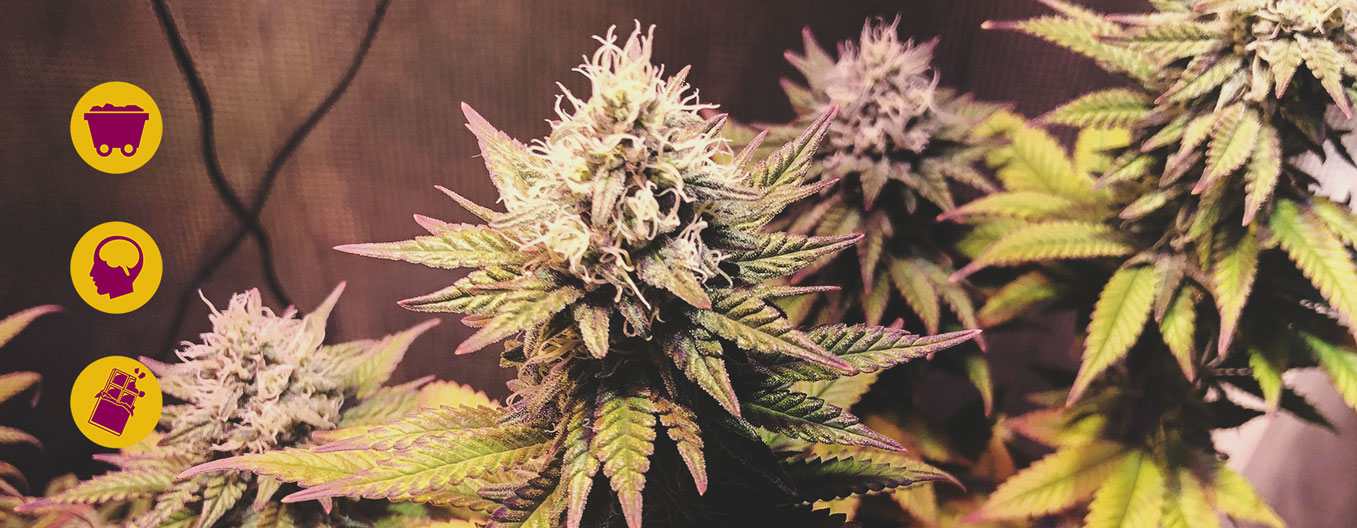
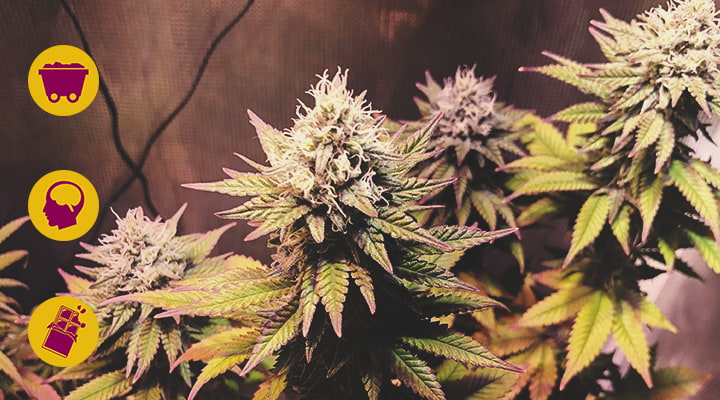
-
Cheese
World-changing cannabis strains typically hail from the United States, but occasionally, powerhouse cultivars pop up outside of these borders. In the case of Cheese, the United Kingdom was home to this incredible cannabis creation. According to legend, the famous breeder Sam the Skunkman distributed Skunk #1 seeds throughout the Netherlands. From here, some of them wound up in South East England. After tweaking the contents over several generations, breeders in this unlikely location managed to birth Cheese, a mighty variety that went on to serve as the precursor to the likes of Royal Cheese, Blue Cheese, and Big Buddha Cheese. This development occurred in the late 1980s, after which Cheese became a fixture in the late 80s/early 90s UK rave scene.
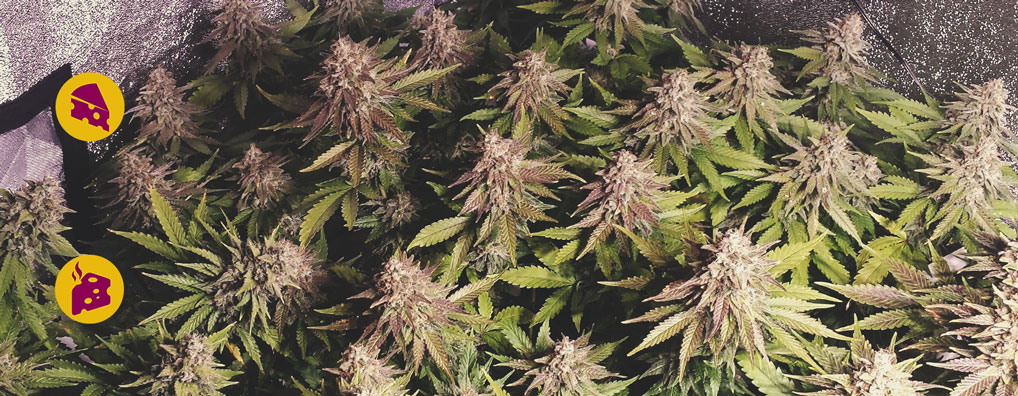
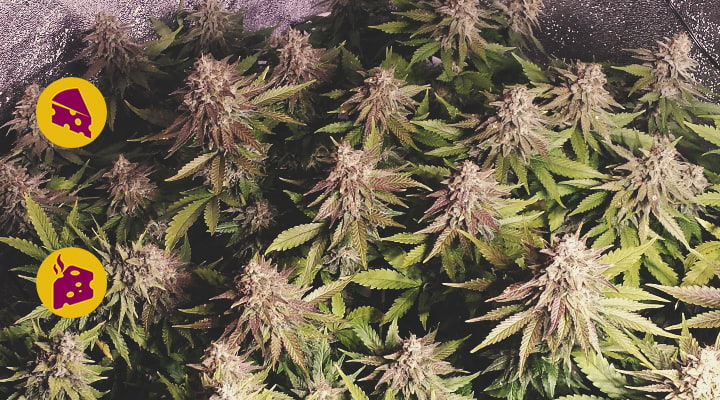
-
Gelato
Compared to the classics mentioned above, Gelato is a fairly new kid on the block. The skilled breeder Mr Sherbinski gave rise to this variety in San Francisco in 2014 by crossing terpene-packed parent strains Girl Scout Cookies and Sunset Sherbet. Sherbinski produced several different Gelato phenos, and #33 quickly rose to the top as the most impressive and popular. The taste-bud-tickling terpene profile of this new-school variety has since infused sweet and fruity tastes into many subsequent hybrids, including Wedding Gelato, Cookies Gelato, and Green Gelato.

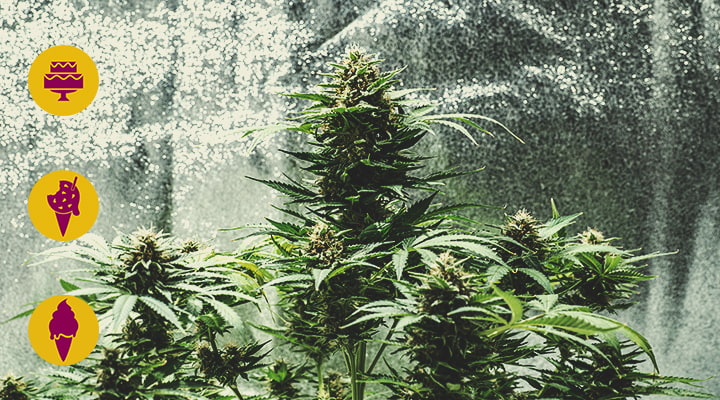
-
Skunk
The word “Skunk” has become synonymous with potent weed, at least as far as sensational headlines are concerned. But within cannabis culture, Skunk (or Skunk #1) chiefly refers to a potent cultivar that rose to prominence in the United States during the 1970s.
The true history of this variety remains murky, but the story goes that Sam the Skunkman created it using landrace varieties including Colombian Gold, Acapulco Gold, and Afghan in California. After stabilising the variety, Sam crossed the pond in the 1980s and arrived in the Netherlands to sell the seeds. Nevil Schoenmakers, the influential Australian-born cannabis breeder and owner of The Seed Bank of Holland (the first cannabis seed bank), purchased a bunch of them. From here, the success of Skunk #1 was set in stone.
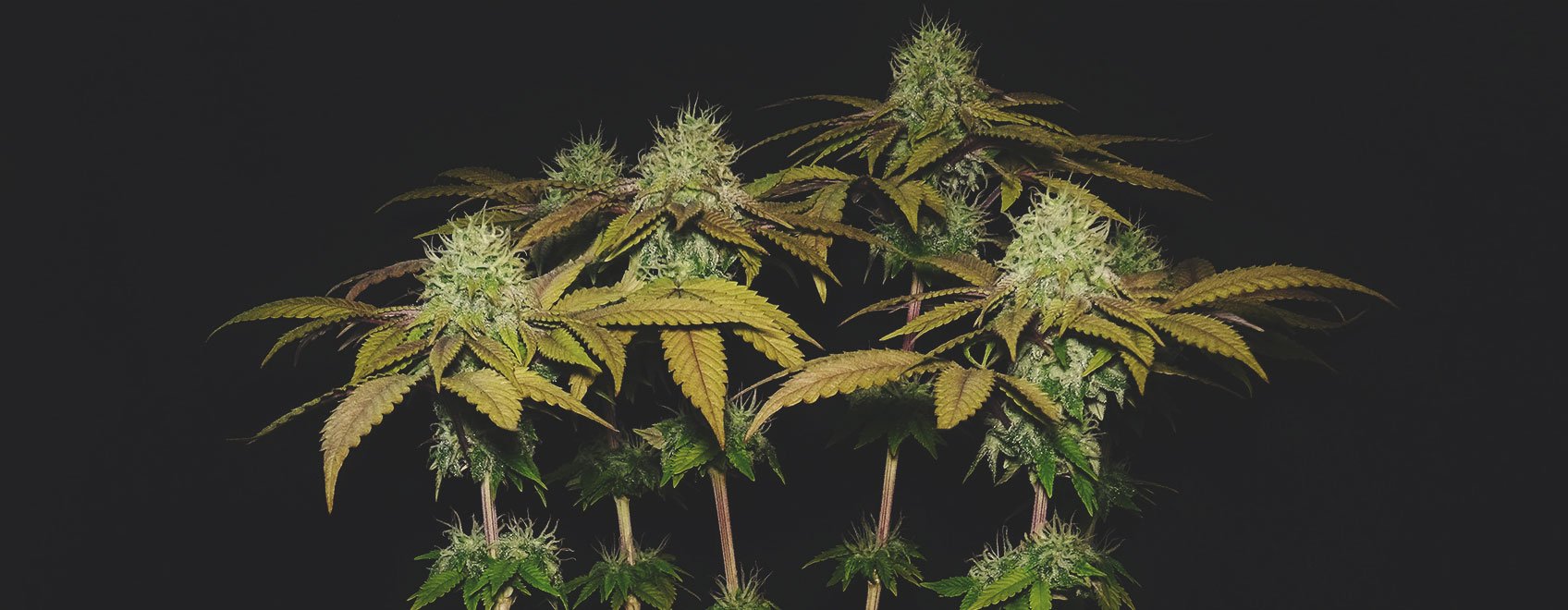
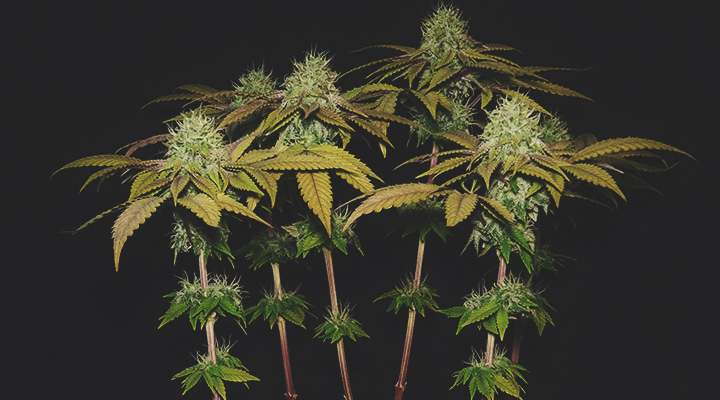
-
Gorilla
Gorilla stems from the original Gorilla Glue cultivar, a powerhouse variety that boasts sky-high levels of THC and peppery terpenes. Of all the phenos generated by this variety, GG #4 packs the hardest punch. This cultivar is actually the result of a breeding "accident" between parent strains Chem's Sis, Sour Dubb, and Chocolate Diesel, and provides the genetic foundation for varieties such as Royal Gorilla and Royal Gorilla Automatic.
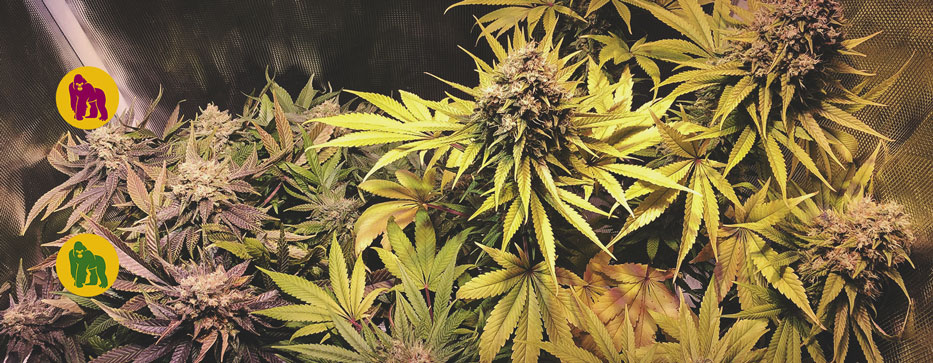
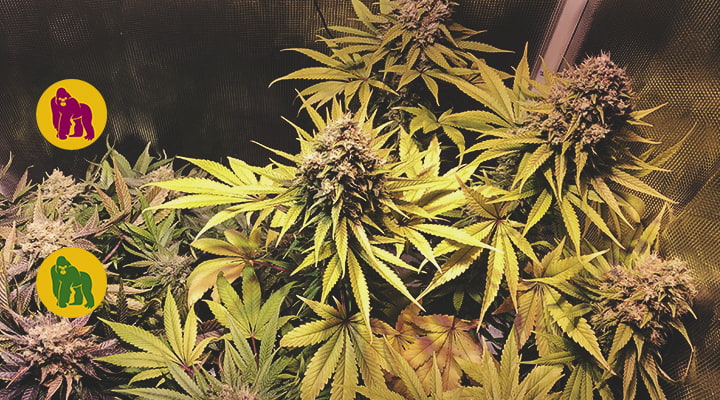
-
Blueberry
Breeder DJ Short gave rise to the scrumptious Blueberry family in the United States during the 1970s. He pulled off this wondrous effort after sampling landrace genetics from diverse regions including Colombia, Mexico, Thailand, and Panama. Following his experiences, he recruited a Purple Thai female, a Highland Thai female, and an Afghan male to get the job done. The creation of Blueberry opened up the doors to creating delicious fruity hybrids, including Royal Bluematic and Blue Cheese.
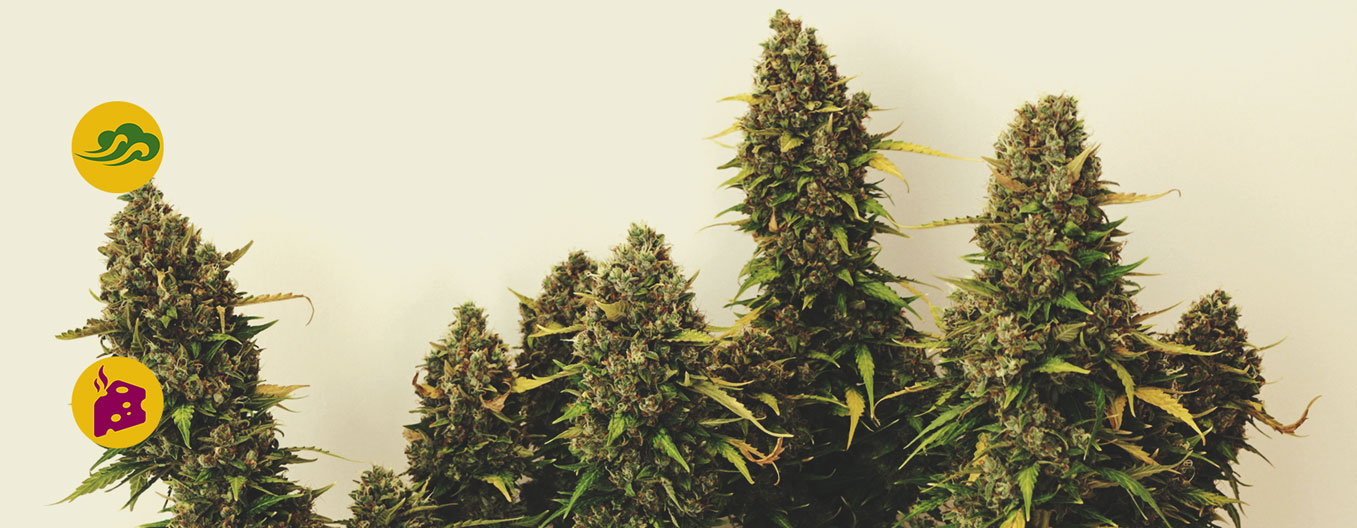
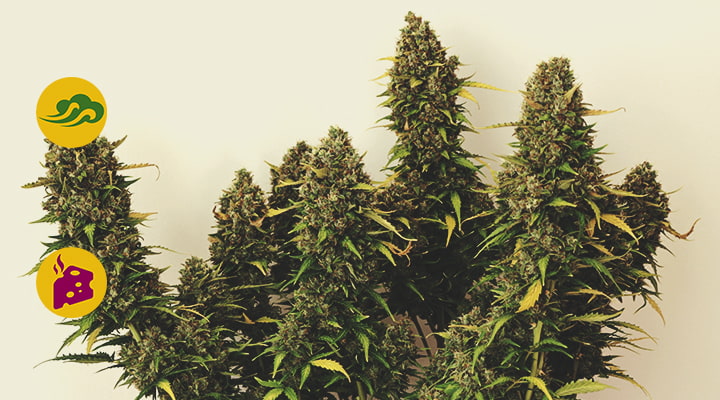
-
Thai
It’s believed that the cannabis plant first entered Thailand through India. As seeds dispersed around the country, farmers cultivated it in isolated pockets for generations, forming the first Thai landraces. Thai landraces exhibit strong sativa morphology (long stems, large fan leaves with narrow leaflets), cerebral effects, and terpene profiles boasting notes of herbs, earth, spices, and wood.
Of all institutions, the US military is credited for first bringing Thai weed to the US. After building bases in Thailand during the 1960s, US troops became key customers for Thai smugglers, who even took1 bottles of gin as currency in return for Thai sticks—a traditional cannabis preparation in the region. Eventually, the first package of cannabis material from Thailand entered the US by way of the Army Post Office. After the introduction of Thai cultivars to the United States, breeders used them to create many renowned varieties, including the aforementioned Blueberry.
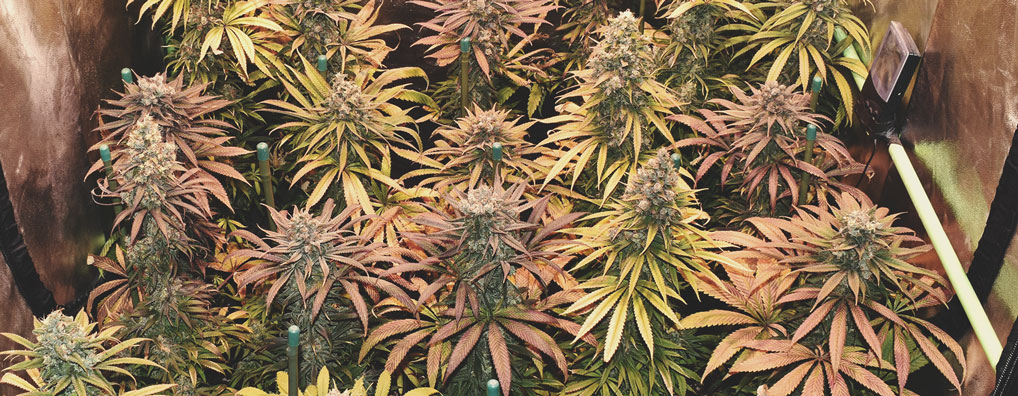
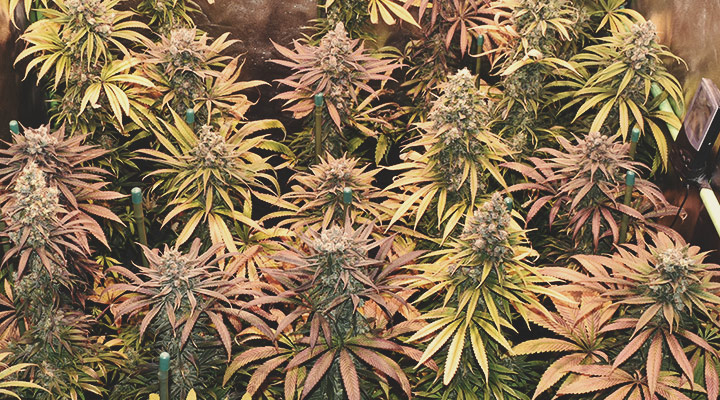
Cannabis Cultivars: It Doesn’t Stop at the Classics
These famous “strain” families have laid the foundations for modern cannabis breeding. But it doesn’t stop there. The cannabis breeding scene is alive and dynamic, and skilled growers are hard at work developing the next generation of cultivars, including those containing novel cannabinoids and complex terpene profiles not present in these classic families. Only time will tell what varieties will be most popular in the future!
- Large-scale whole-genome resequencing unravels the domestication history of Cannabis sativa https://www.science.org
- From Wild Species to Landraces and Cultivars – Crop Wild Relatives and their Use in Plant Breeding https://colostate.pressbooks.pub




























